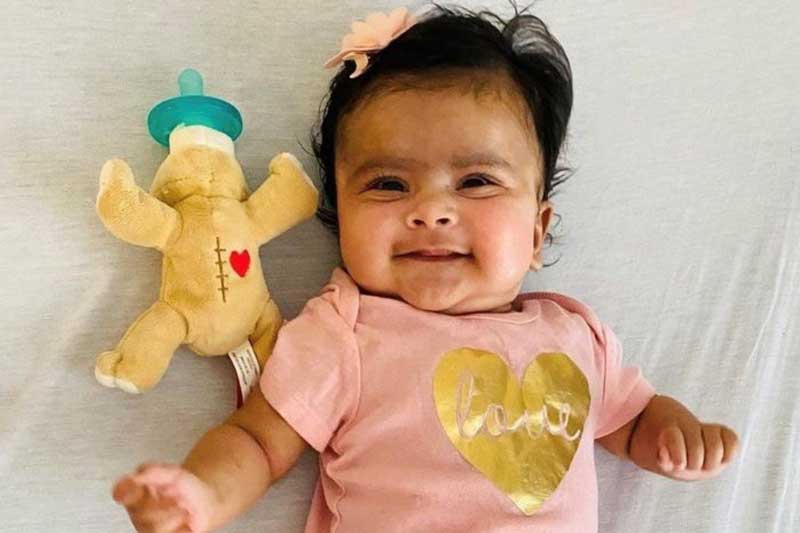CHD's Impact on Children

Ziva was born with ventricular septal defect.
Most every parent has questions about how they can raise their children to be healthy, happy, and successful. But these same questions take on special significance when your child has congenital heart disease (CHD). Each stage of your child's development can bring new questions and new challenges.
Your Baby's Growth
Feeding your baby is rewarding and provides the nutrition your baby needs for physical and mental growth. It is also an opportunity for you to love, touch and communicate with your baby. When your baby gains weight steadily and is content and thriving, it's reassuring and rewarding. A baby born with a congenital heart defect, however, may not gain weight as rapidly as other infants, despite your hard work and persistence, and at times this may be frustrating.
Healthy babies usually double their birth weight between four and five months of age. Infants and children with congenital heart disease and congestive heart failure or cyanosis, a condition in which blood pumped to the body has less oxygen than normal, tend to gain weight more slowly. An eight-ounce to one-pound gain in a month may be an acceptable weight gain for a baby with a heart defect.
Some factors related to congenital heart defects that may interfere with your baby's growth include:
- Excessively rapid heart beat
- Increased respiratory rate
- Poor appetite
- Greater caloric needs
- Decreased food intake due to rapid breathing and fatigue
- Frequent respiratory infections, such as bronchitis or pneumonia
- Poor absorption of nutrients from the digestive tract
- Decreased oxygen in the blood, called hypoxia
The most common reason for poor growth is that the baby isn't taking in enough calories or nutrients. But even if your baby seems to drink enough formula or breast milk, he or she may still gain weight very slowly due to the increased caloric needs. You need not weigh your baby at home. Your baby's pediatrician or cardiologist will weigh your baby with each office visit. These weight measurements will show how well your baby is growing.
Development and Education
Infants and children with a congenital heart defect may have delays in development, learning disabilities or special educational needs. Discuss what testing or therapies may be appropriate for your child with your child’s cardiologist and pediatrician. Fortunately many children with congenital heart defects can attend regular schools. Most children don’t have any physical or mental limitations that prevent them from participating in the normal school program. Most school districts, with the aid of their school nurses, can evaluate children with heart defects and make changes to meet their needs. Many congenital heart centers also have specialized programs to evaluate and treat children at risk of these problems.
Financial Support
While diagnosing and treating congenital heart defects with surgery is costly, there is help. Because the medical expenses of cardiac care are often extremely high, some families — even those with health insurance — need help to pay them. Fortunately, every state has an agency to help eligible families meet their medical expenses. Your doctor can give more information about the program in your state and help you apply. The doctor may refer you to a financial counselor or social worker for help. The amount of financial aid you can get depends on the rules for eligibility in your state, your financial situation and insurance policy, and the cost of cardiac care.
Take a look at your health insurance. Many families are covered under a group plan bought by an employer. Under such a plan, all family members must be covered even though they have preexisting health problems. If you're thinking about changing jobs, find out your child's eligibility for health coverage by the new employer, or if your child can stay covered under your current policy. Don't stop your existing health insurance until you know your child is covered by the new policy.
Support That Empowers






